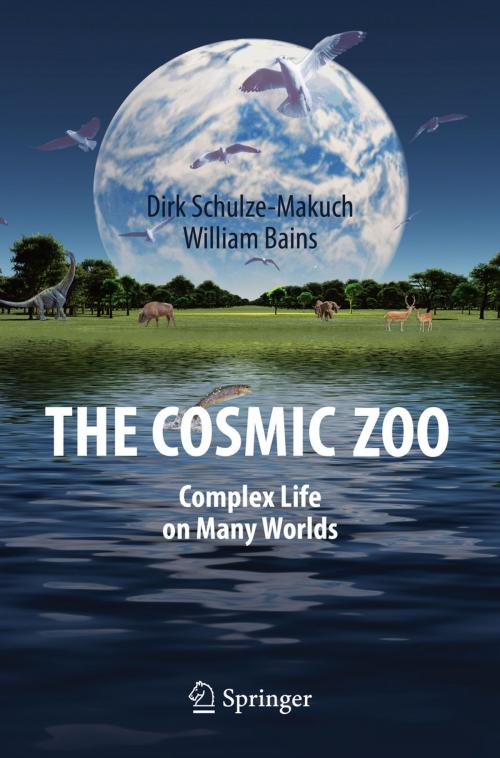The Cosmic Zoo
Complex Life on Many Worlds
Nonfiction, Science & Nature, Science, Physics, Astronomy, Biological Sciences, Biology, Nature| Author: | William Bains, Dirk Schulze-Makuch | ISBN: | 9783319620459 |
| Publisher: | Springer International Publishing | Publication: | November 18, 2017 |
| Imprint: | Springer | Language: | English |
| Author: | William Bains, Dirk Schulze-Makuch |
| ISBN: | 9783319620459 |
| Publisher: | Springer International Publishing |
| Publication: | November 18, 2017 |
| Imprint: | Springer |
| Language: | English |
Are humans a galactic oddity, or will complex life with human abilities develop on planets with environments that remain habitable for long enough? In a clear, jargon-free style, two leading researchers in the burgeoning field of astrobiology critically examine the major evolutionary steps that led us from the distant origins of life to the technologically advanced species we are today.
Are the key events that took life from simple cells to astronauts unique occurrences that would be unlikely to occur on other planets? By focusing on what life does - it's functional abilities - rather than specific biochemistry or anatomy, the authors provide plausible answers to this question. Systematically exploring the various pathways that led to the complex biosphere we experience on planet Earth, they show that most of the steps along that path are likely to occur on any world hosting life, with only two exceptions: One is the origin of life itself – if this is a highly improbable event, then we live in a rather “empty universe”. However, if this isn’t the case, we inevitably live in a universe containing a myriad of planets hosting complex as well as microbial life - a “cosmic zoo”. The other unknown is the rise of technologically advanced beings, as exemplified on Earth by humans. Only one technological species has emerged in the roughly 4 billion years life has existed on Earth, and we don’t know of any other technological species elsewhere. If technological intelligence is a rare, almost unique feature of Earth's history, then there can be no visitors to the cosmic zoo other than ourselves.
Schulze-Makuch and Bains take the reader through the history of life on Earth, laying out a consistent and straightforward framework for understanding why we should think that advanced, complex life exists on planets other than Earth. They provide a unique perspective on the question that puzzled the human species for centuries: are we alone?
Are humans a galactic oddity, or will complex life with human abilities develop on planets with environments that remain habitable for long enough? In a clear, jargon-free style, two leading researchers in the burgeoning field of astrobiology critically examine the major evolutionary steps that led us from the distant origins of life to the technologically advanced species we are today.
Are the key events that took life from simple cells to astronauts unique occurrences that would be unlikely to occur on other planets? By focusing on what life does - it's functional abilities - rather than specific biochemistry or anatomy, the authors provide plausible answers to this question. Systematically exploring the various pathways that led to the complex biosphere we experience on planet Earth, they show that most of the steps along that path are likely to occur on any world hosting life, with only two exceptions: One is the origin of life itself – if this is a highly improbable event, then we live in a rather “empty universe”. However, if this isn’t the case, we inevitably live in a universe containing a myriad of planets hosting complex as well as microbial life - a “cosmic zoo”. The other unknown is the rise of technologically advanced beings, as exemplified on Earth by humans. Only one technological species has emerged in the roughly 4 billion years life has existed on Earth, and we don’t know of any other technological species elsewhere. If technological intelligence is a rare, almost unique feature of Earth's history, then there can be no visitors to the cosmic zoo other than ourselves.
Schulze-Makuch and Bains take the reader through the history of life on Earth, laying out a consistent and straightforward framework for understanding why we should think that advanced, complex life exists on planets other than Earth. They provide a unique perspective on the question that puzzled the human species for centuries: are we alone?















